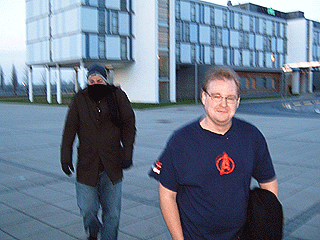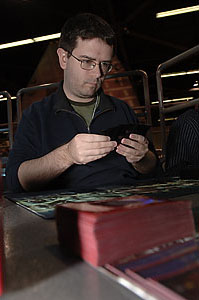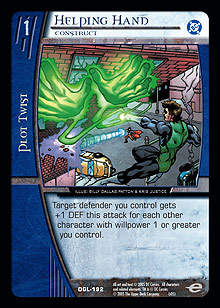
 There is something bizarre about seeing a creature outside of its natural habitat. For that reason alone, I have always found zoos to be compelling in the kind of way that a car accident is; while I am in principle not a big fan of them, I do like to have a little look. At $10K Bremen, I had the pleasure of witnessing a Dave Spears well outside of his natural stomping grounds, contending with (apparently) unfeasibly cold weather, an inability to communicate, and a clock that was about eight hours different from what his body was telling him was correct.
There is something bizarre about seeing a creature outside of its natural habitat. For that reason alone, I have always found zoos to be compelling in the kind of way that a car accident is; while I am in principle not a big fan of them, I do like to have a little look. At $10K Bremen, I had the pleasure of witnessing a Dave Spears well outside of his natural stomping grounds, contending with (apparently) unfeasibly cold weather, an inability to communicate, and a clock that was about eight hours different from what his body was telling him was correct.
The real fun of events like $10Ks and Pro Circuits is often tangential to the tournament itself. Indeed, there were some entertaining escapades in Bremen among those not used to Germany. Stocking up on winter clothes at the first store we passed, drinking lots of Glüwein to try to warm up, sampling some of the best chocolate and beer around . . . life was good.
Of course, one cannot entirely separate the level of enjoyment one gets from an event from one’s finishing record. I am pretty sure that everyone likes to win more than they like to lose, so clearly anything you can do to make yourself more of a winning proposition at events will also give you a better shot at enjoying yourself.
For the Pro Circuit, the best recommendation I can give to that end is to practice drafting. A lot. While Aaron Weil was probably floating on angel breath after going 10-0 on Day 1 of PC Los Angeles, I’m pretty sure that he came down with a significant bump when he went 0-9 in the Draft format and just managed to scrape some money via understandably ridiculous tiebreakers.
 It is very rare for players to go undefeated in Constructed portions of big events. While there are clearly some incredible players out there (names like Mike Dalton, Adam Prosak, and Michael Jacob spring to mind), assuming that everyone has a reasonable deck, the variance between players is not so high that anyone can realistically expect to go better than 8-2 in Constructed at a PC without having snapped the format in half. With the help of the Internet, everyone can get a hold of broadly competitive decks. Testing and tweaking matchup strategy can yield sufficient experience that each player should have a reasonable shot at doing fairly well. Metagaming, luck, and play skill will each make a difference, but at the Pro Circuit level where players should be skilled enough not to make too many grievous errors, playing the metagame could be the most important of those three.
It is very rare for players to go undefeated in Constructed portions of big events. While there are clearly some incredible players out there (names like Mike Dalton, Adam Prosak, and Michael Jacob spring to mind), assuming that everyone has a reasonable deck, the variance between players is not so high that anyone can realistically expect to go better than 8-2 in Constructed at a PC without having snapped the format in half. With the help of the Internet, everyone can get a hold of broadly competitive decks. Testing and tweaking matchup strategy can yield sufficient experience that each player should have a reasonable shot at doing fairly well. Metagaming, luck, and play skill will each make a difference, but at the Pro Circuit level where players should be skilled enough not to make too many grievous errors, playing the metagame could be the most important of those three.
Once one looks at the Draft day, things change a little. There, the difference in skill levels appears more pronounced. Various players have made Draft their baby and have reaped the rewards. Antonino DeRosa and Alex Shvartsman have each made multiple Top 8s by going undefeated in the Sealed Pack portion of an event. Good players with a good plan can minimize the importance of luck with solid drafting and play. Draft also reinforces the importance of being able to do the basics of character combat efficiently. Within Constructed today, beatdown decks often have such absurdly efficient beaters that play doesn’t need to be quite as tight. The control decks running A Child Named Valeria and Catcher’s Mitt will, on occasion, get a little sloppy about their formation simply because they can. But these skills are the bread and butter of Sealed Pack.
 My final thought on Sealed Pack play is that it’s simply amazing for players with a strong mental game. The majority of the time in Constructed, you will have a fair idea of virtually every card in your opponent’s deck after the first few turns. Some cards, like System Failure or Helping Hand, are possible to play around if you are careful. Often, you cannot play around a trick or can simply assume it’s not there. Fantastic Fun, once attacking, can only really have power-ups to make its characters bigger, so Acrobatic Dodges can be used with relative impunity. Not so in Sealed Pack. Getting reads on what tricks an opponent may or may not have and how many “outs” there are against your various attacks becomes a much more valuable skill in a format where most every deck could have a variety of combat tricks.
My final thought on Sealed Pack play is that it’s simply amazing for players with a strong mental game. The majority of the time in Constructed, you will have a fair idea of virtually every card in your opponent’s deck after the first few turns. Some cards, like System Failure or Helping Hand, are possible to play around if you are careful. Often, you cannot play around a trick or can simply assume it’s not there. Fantastic Fun, once attacking, can only really have power-ups to make its characters bigger, so Acrobatic Dodges can be used with relative impunity. Not so in Sealed Pack. Getting reads on what tricks an opponent may or may not have and how many “outs” there are against your various attacks becomes a much more valuable skill in a format where most every deck could have a variety of combat tricks.
For my money, the best player in the game right now for making positive reads on opponents is two time Top 8 finisher Neil Reeves. Foghorn Leghorn himself takes experience from various card games and puts it to brutal use in Vs. System. It seems that what might be considered “tricks” against other opponents are just casually expected speed bumps for Neil’s play. By keeping track of the cards that have gone around in the Draft, as well as by good knowledge of the format and what might conceivably prove to be a stumbling block for his plan of action, Neil dominates at the Draft table.
While we are in the festive period, there tends to be slightly fewer sanctioned tournaments, but I urge you to make the most of the holidays and get at least one draft in. Find seven friends, club together on a box of boosters, and go wild.
Aside – The Laziness That is Tim Willoughby
In the next few weeks, Metagame.com will be allowing the editing staff a little time for Christmas cheer while the chorus of monkeys with typewriters that I use to put together my articles will be donning their wings for a pantomime version of The Wizard of Oz. In the meantime, there will be various “greatest hits” reprints with extra bonus intros and added material for your festive perusal. Which leads me to a small problem. I am interminably lazy and, much like the friend of mine who suggests taking a taxi to the McDonald’s at the end of the road, I don’t have quite the vigor and vim at the end of the year to toot my own horn too loudly. To this end, I was wondering if any of you kind readers might point out to me which of my articles you particularly enjoyed and would like to see revisited with new thoughts, some changed jokes, and maybe an updated picture or two.
Stay lucky, people!
Tim “And Lappy2 and the Chorus of Monkeys Wish You Much Festive Cheer” Willoughby
timwilloughby@hotmail.com